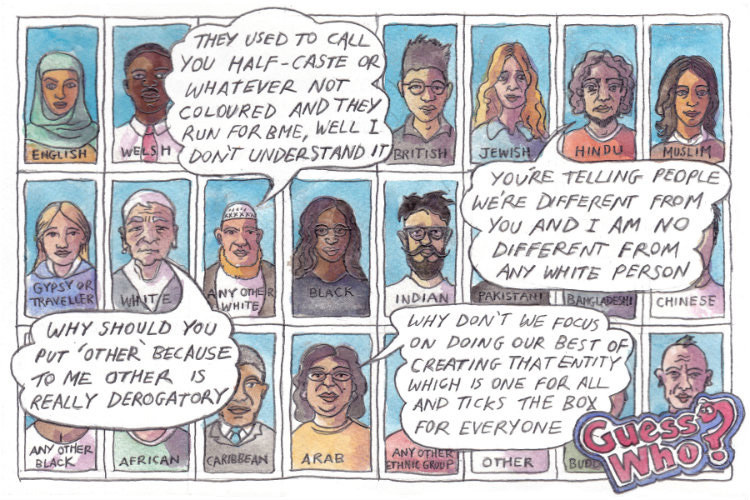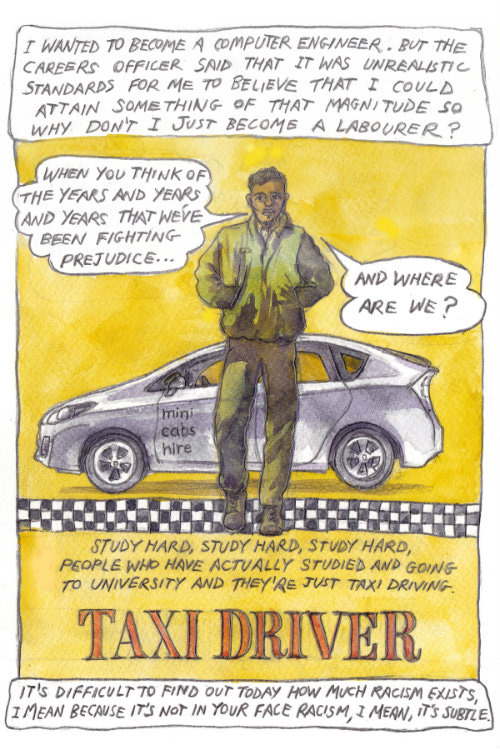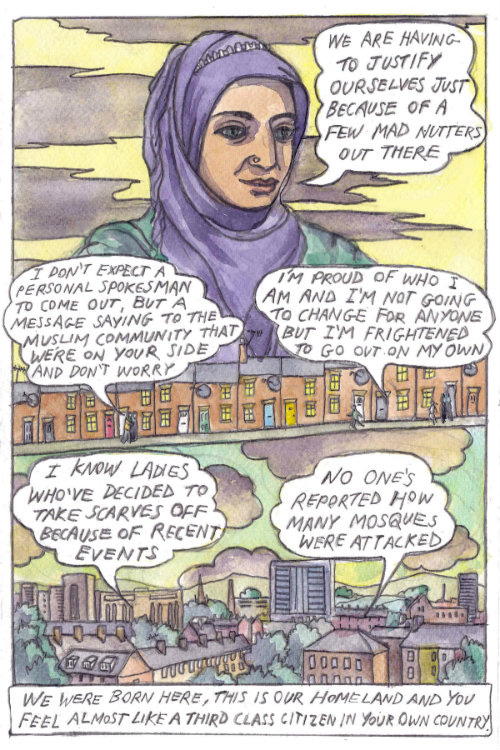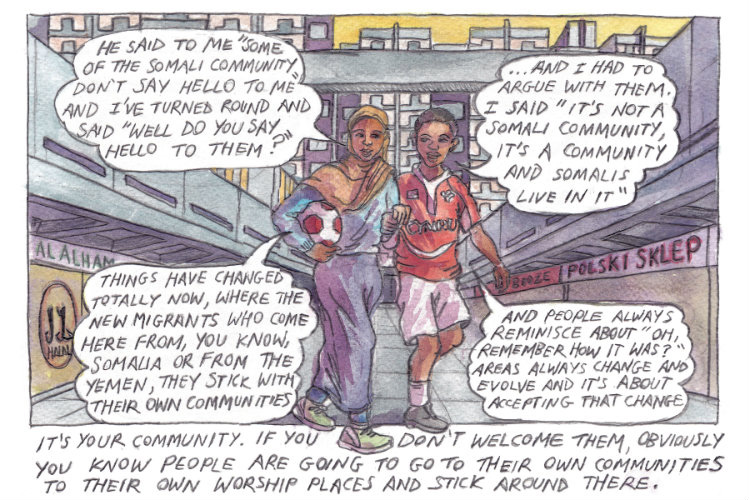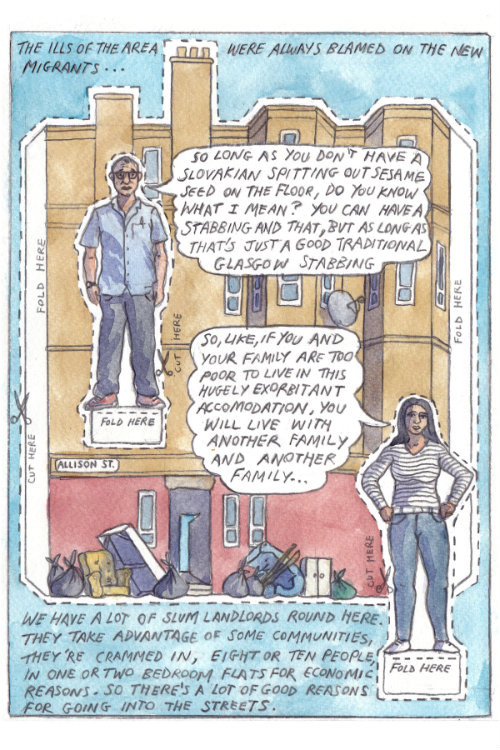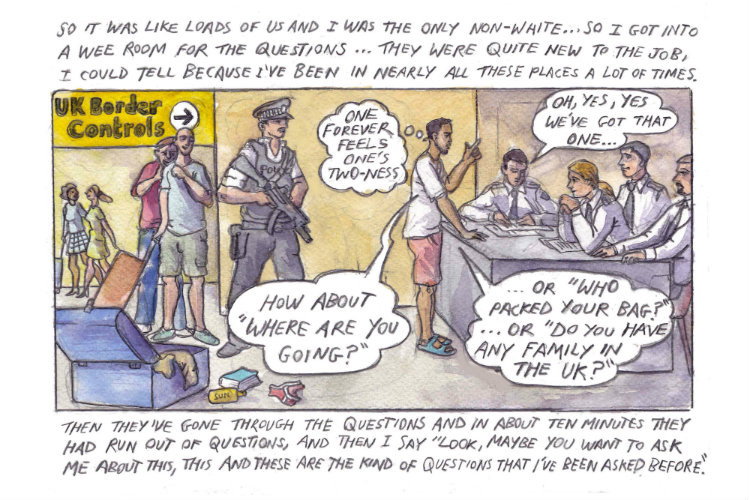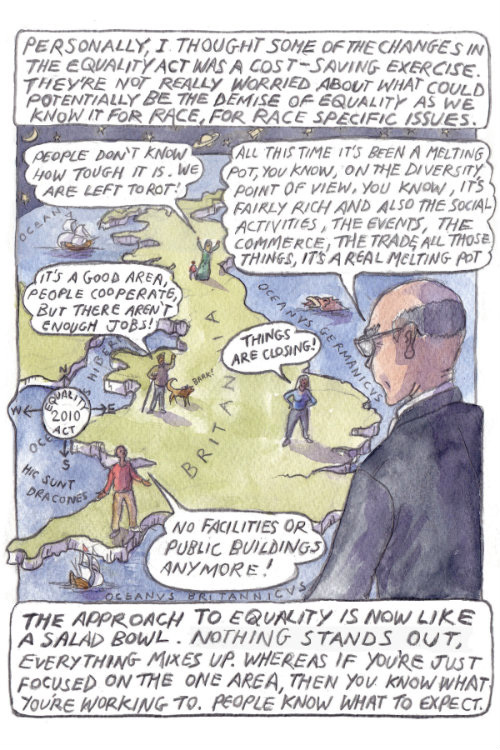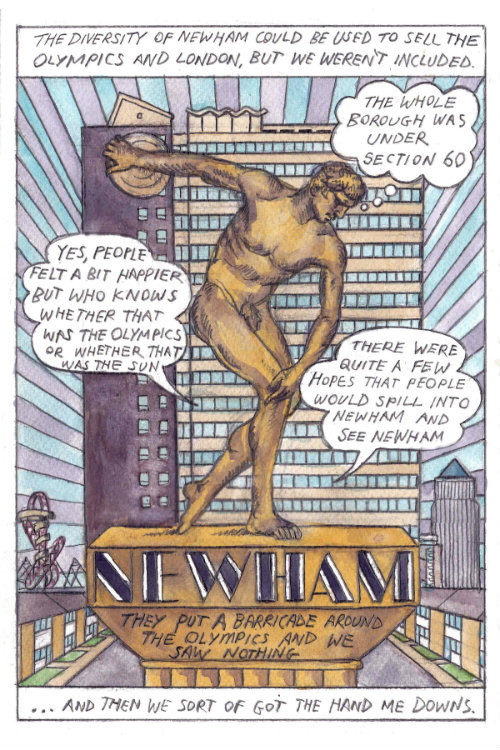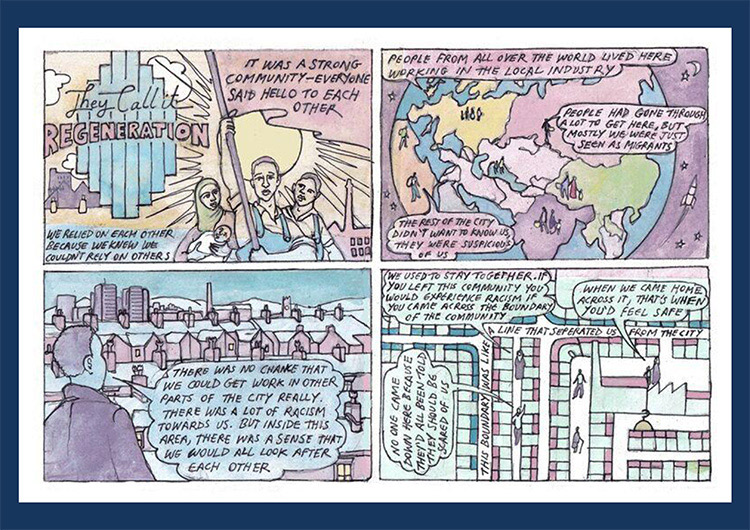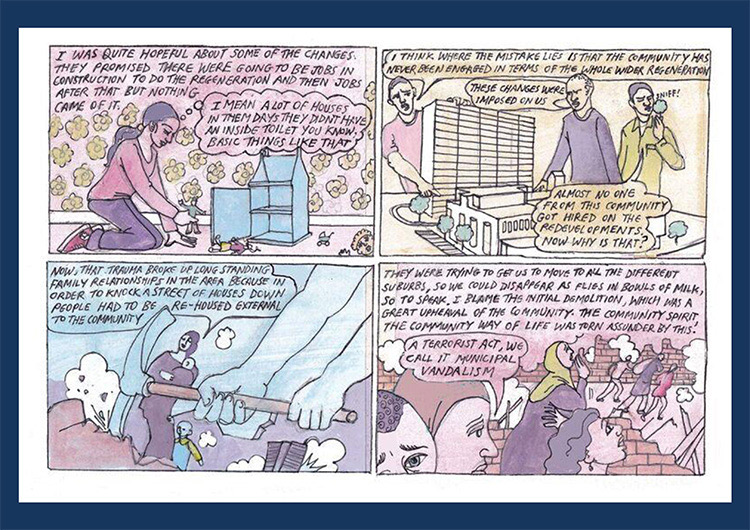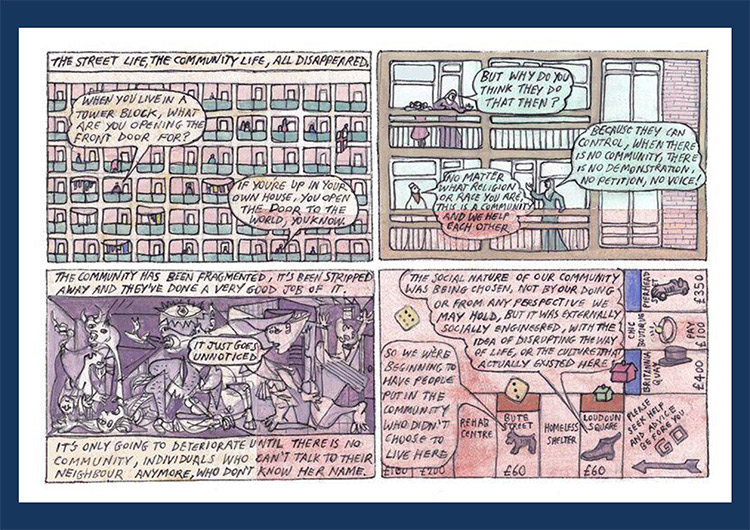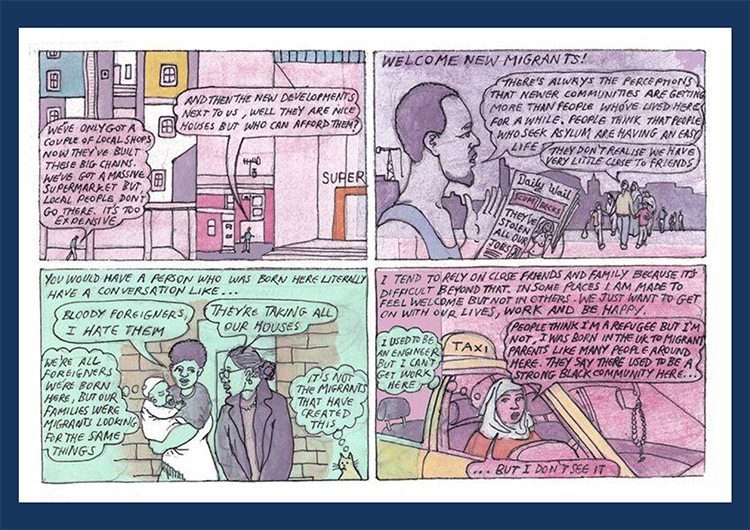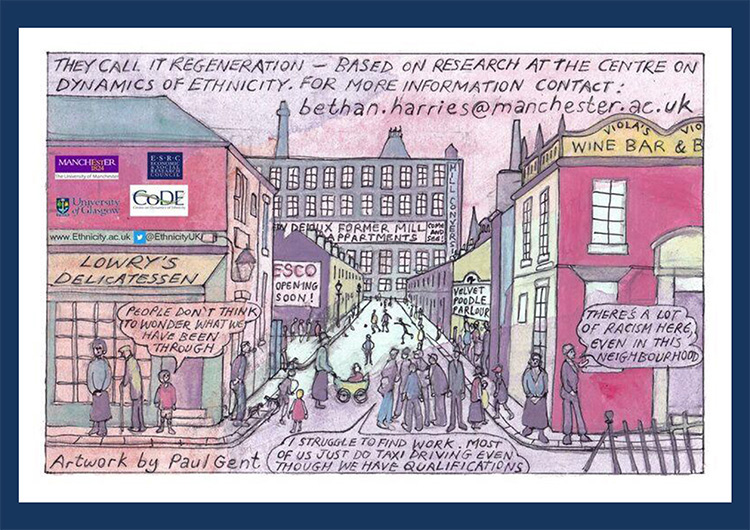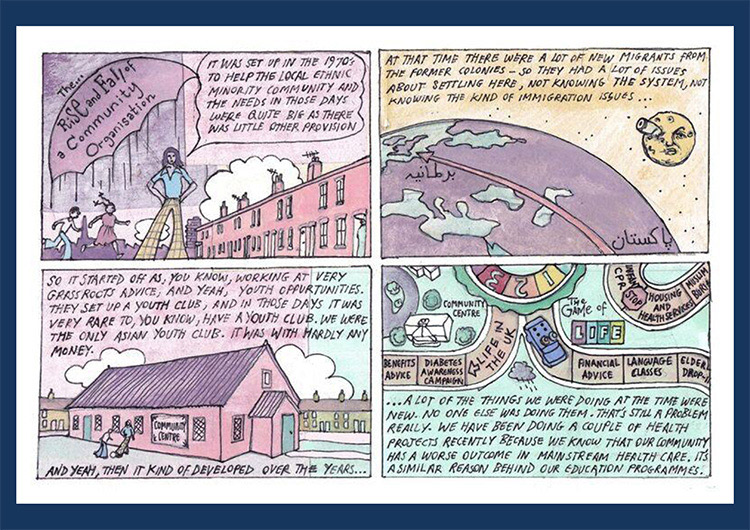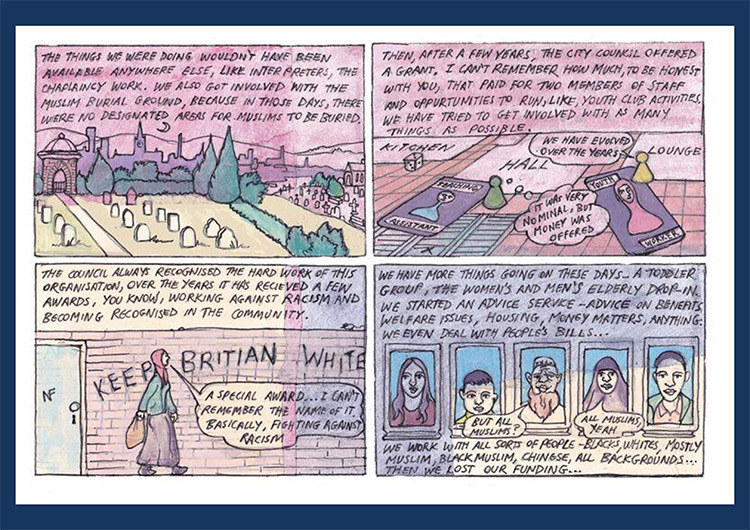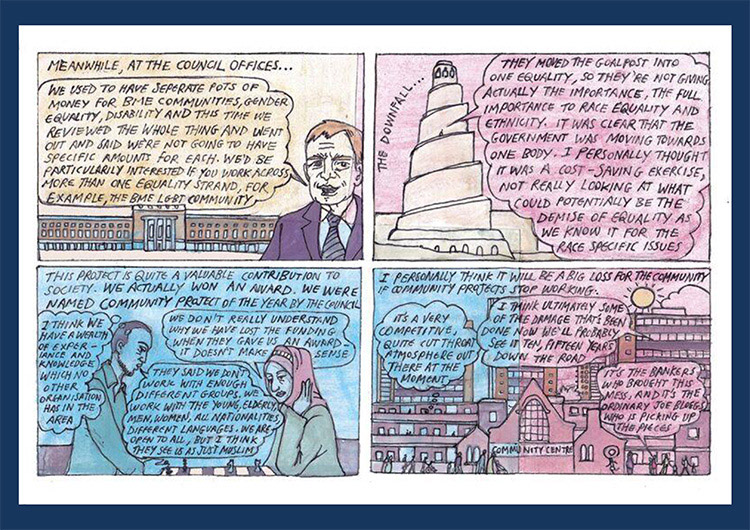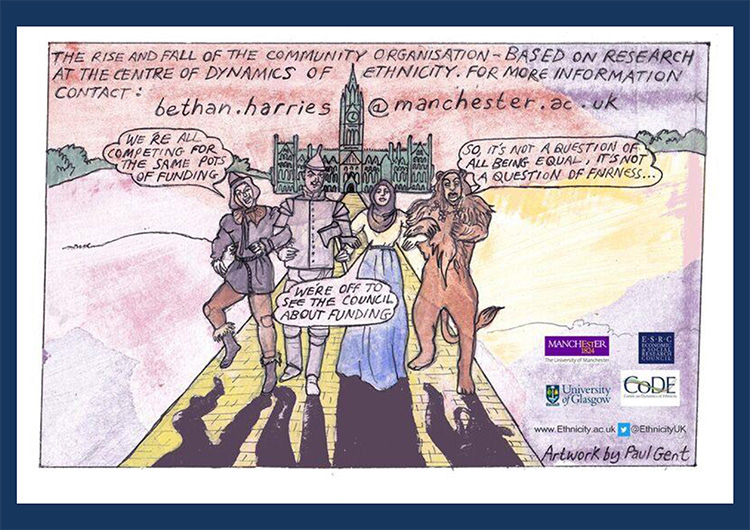Localities studies
We're conducting qualitative studies examining race and ethnicity in four localities across the UK: Cardiff, Glasgow, Manchester, and the London Borough of Newham.
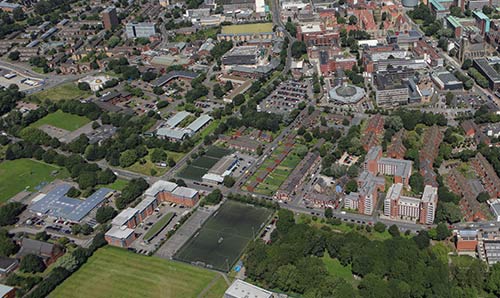
In these local areas, we are interested in the lived experience of race and ethnicity; the language of ethnicity and race; how race and ethnicity are managed in the social and political context; how neighbourhoods and diversity are understood and remembered in the past. We will be exploring how these themes change for people over time, generation and life stage.
As part of our community engagement work, we carried out pop-up research events in the four localities to engage with local communities. These took place on Cheetham Hill high street (in collaboration with Buddleia Arts, in Govanhill at the Go Slow Café, in Newham at East Ham market and in Butetown in Loudoun Square (with assistance from Cardiff Community Housing Association and Butetown Community Centre).
#EverydayRace
The #EverydayRace graphic art project emerged following consultation with some of our research participants who suggested that visual media would be a concise and striking means to share our research findings.
The images represent various ways that race is routinely experienced in people’s lives in the UK. All artwork is by Paul Gent.

